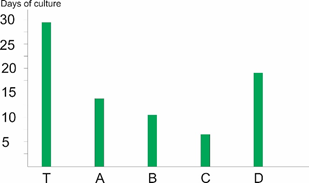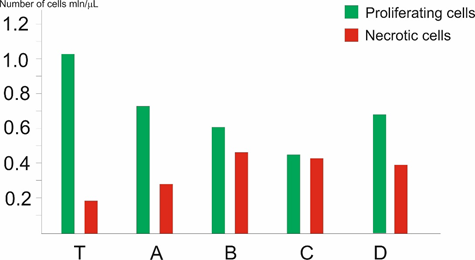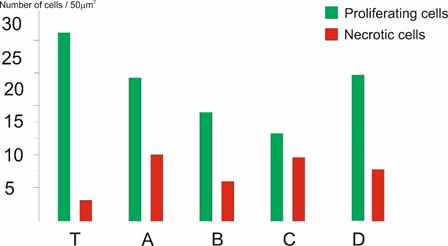Never miss an update from Jagiellonian University
Create your free account to connect with Jagiellonian University and thousands of other innovative organizations and professionals worldwide
The subject of the offer is a specialized medium for the in vitro culture of cells, tissues, and organs of amphibians. Thanks to the unique composition of active substances and refined their concentrations to the requirements of amphibian cells, the use of medium enables long-term culture as well as a high level of cell proliferation and reduction of cell mortality.
Currently, in research and experiments, during which amphibian cell and tissue cultures are carried out, appropriately diluted media mixtures developed for mammals are used. Unfortunately, some components of such media, despite adequate dilution, may have a toxic effect on amphibian cells. On the other hand, after diluting the media originally intended for mammalian cell and tissue culture, in order to adapt them to amphibian cell culture, the concentrations of all substances are reduced, which means that some of them stop working. This clearly indicates that the dilution of the medium developed for the culture of mammalian cells is not sufficient to ensure good conditions for culturing the cells, tissues, and organs of amphibians. Therefore, the development of a medium, the composition of which in terms of active substances and their concentrations would be formulated for the culture of amphibian cells, is desirable.
The subject of the offer is a specialized medium for the in vitro culture of cells, tissues, and organs of amphibians. Thanks to the unique composition of active substances and refined their concentrations to the requirements of amphibian cells, the use of medium enables long-term culture as well as a high level of cell proliferation and reduction of cell mortality.
The final stage of the research on invention was the comparison of the amphibian cell and organs culture carried out using the developed medium in relation to the cultures carried out with most commonly used mixtures of mediums developed for the cultivation of mammalian cells.
The following media were used in comparative studies:
A - (67% L15 + 10% FBS) (Sinzelle et al. 2012);
B - (33,3 mL L15, 33,3 mL RPMI1640+HEPES + 10%FBS + 1,33 mg/Ml sodium bicarbonate + 1 mM sodium pyruvate) (Tlapakova et al. 2016);
C- (66% L15 + 10%FBS) (according to Stukenberg Lab);
D - (33,3 mL L15, 33,3 mL RPMI1640+HEPES + 6,65%FBS + 26 mL water) (Piprek et al. 2013);
T- Developed medium
Comparative research has shown that:
- the developed medium enables the cultivation of amphibian cells in vitro for the longest period of time (up to 30 days) (Figure 1)

Figure1
- culture of cells enzymatically isolated from the Xenopus laevis amphibian, carried out with the developed medium, showed the highest number of proliferating cells and the lowest number of necrotic cells (Figure 2)

Figure 2
- cells isolated from gonads of Xenopus laevis tadpoles cultured using the developed medium showed the highest level of cell proliferation and the lowest level of necrosis (Figure 3)

Figure 3
Intellectual property status
Patent already applied for
Patent application number : P 428393
Where : Poland
Current development status
Laboratory prototypes
Desired business relationship
Technology selling
Patent licensing
Technology development
Adaptation of technology to other markets
Jagiellonian University, founded 1364, is the oldest university in Poland and one of the oldest worldwide. The research and teaching activities are conducted at 15 faculties, including the Medical College (Collegium Medicum). Over 3,700 researchers work at the university and the total number of students is about 50,000.
Create your free account to connect with Jagiellonian University and thousands of other innovative organizations and professionals worldwide
Send a request for information
to Jagiellonian University
Technology Offers on Agri-Food are directly posted
and managed by its members as well as evaluation of requests for information. Agri-Food is the trusted open innovation and science network aimed at directly connect industry needs with professionals online.
Need help requesting additional information or have questions regarding this Technology Offer?
Contact Agri-Food support